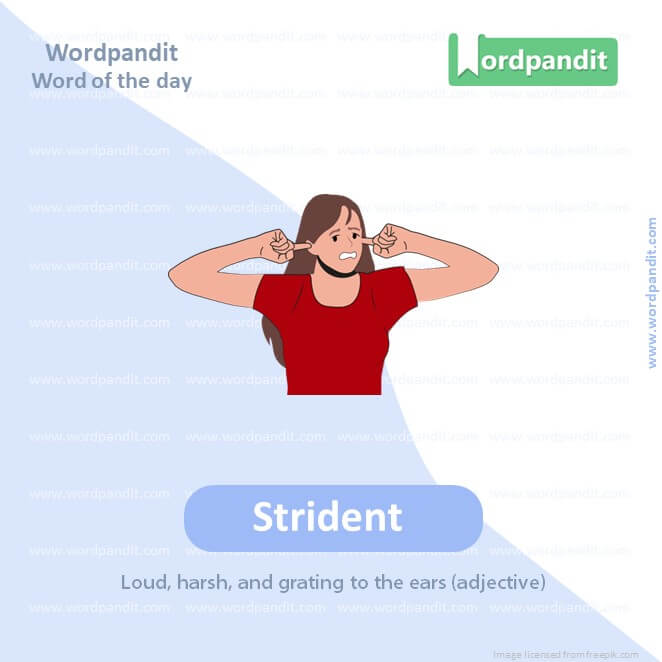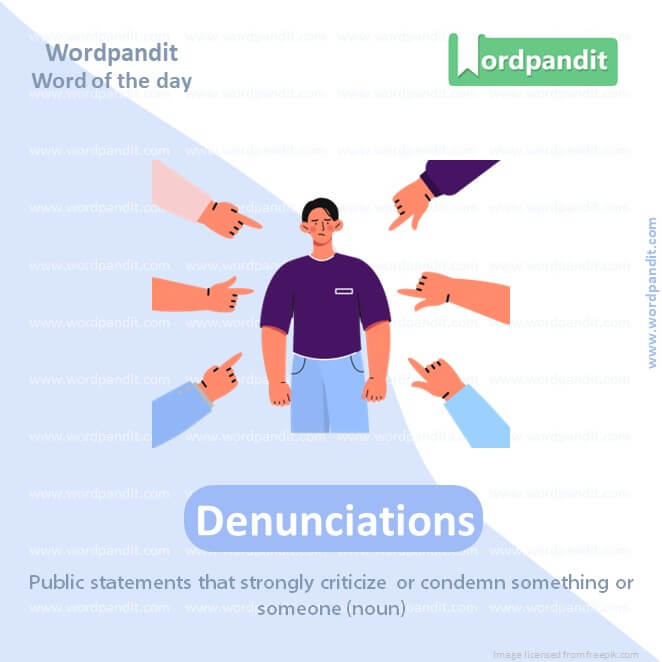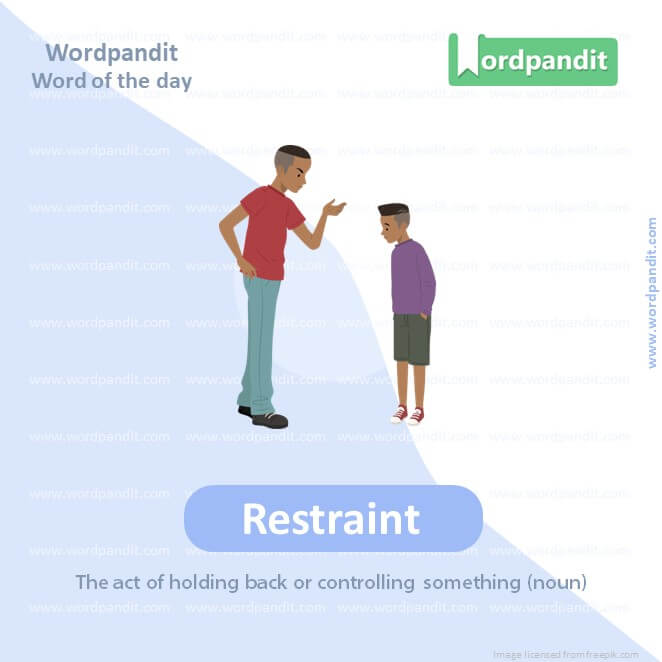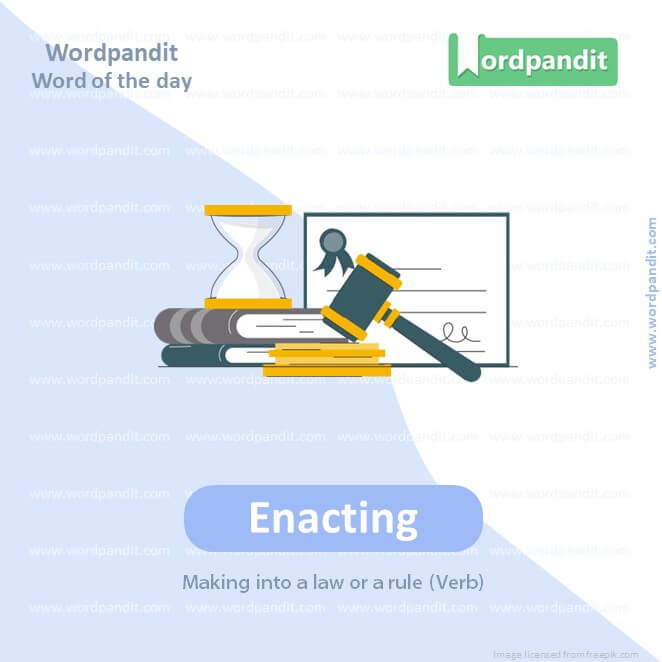Daily Vocabulary Words: List of Daily Used Words in Leading International Newspapers
Hi there. Welcome to this special section @ Wordpandit.
Our endeavour here is very simple: to highlight important daily vocabulary words, which you would come across in leading newspapers in the country. We have included the following newspapers in our selection:
• The New York Times
• The Washington Post
• Scientific American
• BBC
• The Guardian
• Psychology Today
• Wall Street Journal
• The Economist
We are putting in extensive work for developing your vocabulary. All you have got to do is be regular with this section and check out this post on a daily basis. This is your repository of words that are commonly used and essentially, we are posting a list of daily used words. Hence, this has significant practical application as it teaches you words that are used commonly in leading publications mentioned above.
Visit the website daily to learn words from leading international newspapers.
WORD-1: Snuffed
CONTEXT: The Man Who Snuffed Out Abortion Rights Is Here to Tell You He Is a Moderate
SOURCE: New York Times
EXPLANATORY PARAGRAPH: Imagine you have a candle lit, and it’s giving off a soft, warm light. If someone comes and pinches the wick or blows on it really hard, the light goes out immediately. That action, when the candle light is put out, can be called “snuffed.” It’s like turning off a light switch, but with a candle.
MEANING: Extinguished or put out (verb).
PRONUNCIATION: s-nuh-ffd
SYNONYMS: Extinguished, doused, quenched, smothered, put out
USAGE EXAMPLES:
1. She snuffed the candle before going to bed.
2. The wind snuffed out the flames of the campfire.
3. He snuffed the torch with a wet cloth.
4. The last light in the house was snuffed, leaving everything in darkness.
WORD-2: Rhetorician
CONTEXT: He certainly does not speak from anything we might recognize as reason; when he’s holding forth from a podium, even the most careful students of Trump the rhetorician will struggle to find the light of complex thought.
SOURCE: New York Times
EXPLANATORY PARAGRAPH: Imagine someone who is really good at telling stories or making speeches, making everyone listen closely because they say things in a special and convincing way. This person knows how to use words beautifully and powerfully to make people feel and think certain things. We call someone like this a “rhetorician.” It’s like being a word magician.
MEANING: A person skilled in the art of rhetoric or effective persuasive speaking and writing (noun).
PRONUNCIATION: reh-toh-RIH-shun
SYNONYMS: Orator, speaker, speechmaker, eloquent person, persuasive writer
USAGE EXAMPLES:
1. The politician was also a skilled rhetorician who could sway the audience.
2. Famous rhetoricians throughout history have left us with memorable speeches.
3. She admired the professor’s abilities as a rhetorician.
4. To become a good rhetorician, one must study language and persuasion.
WORD-3: Mounting
CONTEXT: Compared with the mounting push from anti-abortion activists to ban the procedure nationwide, however, Trump’s stance is designed to look almost moderate.
SOURCE: New York Times
EXPLANATORY PARAGRAPH: Think about when you’re stacking blocks, one on top of the other, making the stack higher and higher. Or when you’re getting ready for a big party and you see more and more decorations going up. This building up or increase is called “mounting.” It’s like watching things grow bigger or get more intense bit by bit.
MEANING: Increasing or growing in amount, intensity, or magnitude (adjective).
PRONUNCIATION: MOWN-ting
SYNONYMS: Escalating, increasing, rising, growing, accumulating
USAGE EXAMPLES:
1. The mounting tension in the room was palpable.
2. Evidence was mounting against the accused.
3. They were facing mounting costs for the project’s completion.
4. The mounting excitement for the concert could be felt in the air.

WORD-4: Alienating
CONTEXT: He knows that he needs to neutralize this issue as much as possible, without alienating his anti-abortion followers.
SOURCE: New York Times
EXPLANATORY PARAGRAPH: Imagine if every time you tried to play with your friends, you accidentally said or did things that made them upset or made them not want to play with you. This would make you feel left out and lonely. When someone makes others feel this way, we say they are “alienating” those people. It’s like pushing friends away instead of pulling them close.
MEANING: Making someone feel isolated or estranged, often socially (Adjective)
PRONUNCIATION: AY-lee-uh-nay-ting
SYNONYMS: Estranging, distancing, isolating, dividing, detaching
USAGE EXAMPLES:
1. His harsh words were alienating his friends.
2. The company’s policies were alienating its customers.
3. She worried about alienating her teammates with her criticisms.
4. The new law was alienating voters across the board.

WORD-5: Strident
CONTEXT: He’s trying to put abortion in the rearview mirror, to treat it as a settled fact that he wants a less strident approach to reproductive rights.
SOURCE: New York Times
EXPLANATORY PARAGRAPH: Think of a noise that’s so loud and harsh that you want to cover your ears, like the sound of a car alarm or someone shouting really loudly. This kind of sound that almost hurts your ears is called “strident.” It’s the opposite of soft and pleasant sounds, like music or a whisper.
MEANING: Loud, harsh, and grating to the ears (adjective)
PRONUNCIATION: STRY-dent
SYNONYMS: Harsh, raucous, shrill, jarring, piercing
USAGE EXAMPLES:
1. The strident alarm woke everyone in the house.
2. Her voice became strident during the argument.
3. The debate was filled with strident exchanges between the participants.
4. He couldn’t ignore the strident sounds of traffic outside his window.

WORD-6: Denunciations
CONTEXT: Unless the court rules in favor of the government in these cases, denunciations undoubtedly will follow, especially in an election year.
SOURCE: New York Times
EXPLANATORY PARAGRAPH: Imagine someone doing something very wrong, like cheating in a game. Then, someone else tells everyone about what they did and says that it’s not okay. This telling and showing that something wrong happened is called “denunciations.” It’s like when someone points out a rule being broken to make sure everyone knows it’s not right.
MEANING: Public statements that strongly criticize or condemn something or someone (noun).
PRONUNCIATION: dee-nuhn-SEE-ay-shuns
SYNONYMS: Condemnations, criticisms, attacks, reproaches, accusations
USAGE EXAMPLES:
1. The politician faced denunciations from the public after the scandal.
2. Denunciations of the company’s policy came from several organizations.
3. The article was full of denunciations of the corrupt practices.
4. He stood firm despite the denunciations against his actions.

WORD-7: Restraint
CONTEXT: What began with calls for judicial restraint during the Nixon era eventually became a long campaign devoted to promoting originalist theories of interpretation.
SOURCE: New York Times
EXPLANATORY PARAGRAPH: Think about when you’re really excited or upset, and you take a deep breath and try not to shout or jump around. You’re showing “restraint” by keeping your feelings or actions under control. It’s like when you want to eat all the cookies but decide to save some for later because you know it’s better.
MEANING: The act of holding back or controlling something (noun)
PRONUNCIATION: ree-STRAYNT
SYNONYMS: Control, moderation, self-control, discipline, constraint
USAGE EXAMPLES:
1. She showed great restraint in not responding to the rude comment.
2. Using restraint is important in difficult situations.
3. The teacher asked the students to exercise restraint during the assembly.
4. His lack of restraint led to too much spending.
WORD-8: Conspicuous
CONTEXT: This effort had its first conspicuous success in 2008, when a 5-to-4 majority struck down a handgun ban in District of Columbia v. Heller.
SOURCE: New York Times
EXPLANATORY PARAGRAPH: Imagine wearing a bright neon costume in a room where everyone else is dressed in black and white. You would stand out a lot, right? When something is very easy to see or notice because it’s different or unusual, we call it “conspicuous.” It’s like being the only sunflower in a field of grass.
MEANING: Easily seen or noticed; attracting attention (adjective).
PRONUNCIATION: kun-SPICK-yoo-us
SYNONYMS: Noticeable, obvious, prominent, evident, striking
USAGE EXAMPLES:
1. The bright red door was conspicuous against the dull background.
2. He tried not to be conspicuous at the party.
3. Her talent made her conspicuous in the group.
4. The mistake was all too conspicuous in the final report.

WORD-9: Enacting
CONTEXT: Under those principles, only the text of a statute is the law, which cannot be changed unless Congress amends it by enacting a new law.
SOURCE: New York Times
EXPLANATORY PARAGRAPH: Imagine you’re playing pretend, and you decide to act out being a superhero who saves the city. You’re making the story real by playing it out. “Enacting” is similar; it’s when laws or ideas are made official by acting on them or putting them into practice. It’s like turning a plan into action so it really happens.
MEANING: Making Into a law or a rule (Verb)
PRONUNCIATION: ee-NAK-ting
SYNONYMS: Implementing, executing, enforcing, legislating, instituting
USAGE EXAMPLES:
1. The government is enacting new policies to improve health care.
2. Enacting the plan required careful coordination.
3. The play was successfully enacted by the drama club.
4. Efforts are being made to enact changes in environmental protection laws.
WORD-10: Unambiguous
CONTEXT: That conclusion was dictated by the unambiguous language of the statute, which requires that multiple shots be fired “by a single function of the trigger.”
SOURCE: New York Times
EXPLANATORY PARAGRAPH: Think about when someone gives you very clear directions to find a hidden treasure, without any confusing turns or tricky parts. Everything they say is easy to understand, with no guesswork needed. When something is this clear and straightforward, without any confusion, we call it “unambiguous.” It’s like a clear, sunny day without a single cloud.
MEANING: Clear and with only one possible meaning; not ambiguous (adjective).
PRONUNCIATION: un-am-BIG-yoo-us
SYNONYMS: Clear, explicit, straightforward, unequivocal, definite
USAGE EXAMPLES:
1. The instructions were unambiguous and easy to follow.
2. His stance on the issue was unambiguous; he left no room for doubt.
3. The signs must be unambiguous to avoid confusion.
4. Her reply was unambiguous, leaving no question about her feelings.
Vocabulary 100 Words
Diving into the exciting waters of language learning, encountering a list of ‘vocabulary 100 words’ is a common step. These lists, often tailored to specific proficiency levels or topics, present microcosms of the language, cradling essential words that broaden our linguistic comprehension. However, to effectively grasp ‘vocabulary 100 words’, a well-crafted strategy is imperative.
The cornerstone of learning any ‘vocabulary 100 words’ lies in understanding each word with depth. This involves more than just registering the meaning. It extends to understanding its use in different contexts, its nuances, and its connotations.
When navigating ‘vocabulary 100 words’, pacing is extremely important. Rather than trying to absorb all the words at once, a steady approach of learning a few words every day promotes better retention. This assures your brain is not overwhelmed with information, resulting in more effective learning.
Interactivity adds a significant boost while engaging with ‘vocabulary 100 words’. Employ tools like flashcards or digital language-learning apps to make your learning experience more engaging. Regular tests or quizzes provided by these platforms can be beneficial in gauging your progress and identifying areas that need additional work.
Real-world usage significantly enriches understanding of ‘vocabulary 100 words’. Incorporate the words into your daily conversations, writing, or social media interactions. This practice element not only empowers retention but also bolsters your confidence in using these words correctly.
In conclusion, mastering ‘vocabulary 100 words’ is an enriching journey that calls for systematic learning, paced approach, engaging tools, and practical application. As you venture down this path, you’ll find the ‘vocabulary 100 words’ transforming from daunting lists into friendly allies, accompanying you on your thrilling linguistic exploration.







